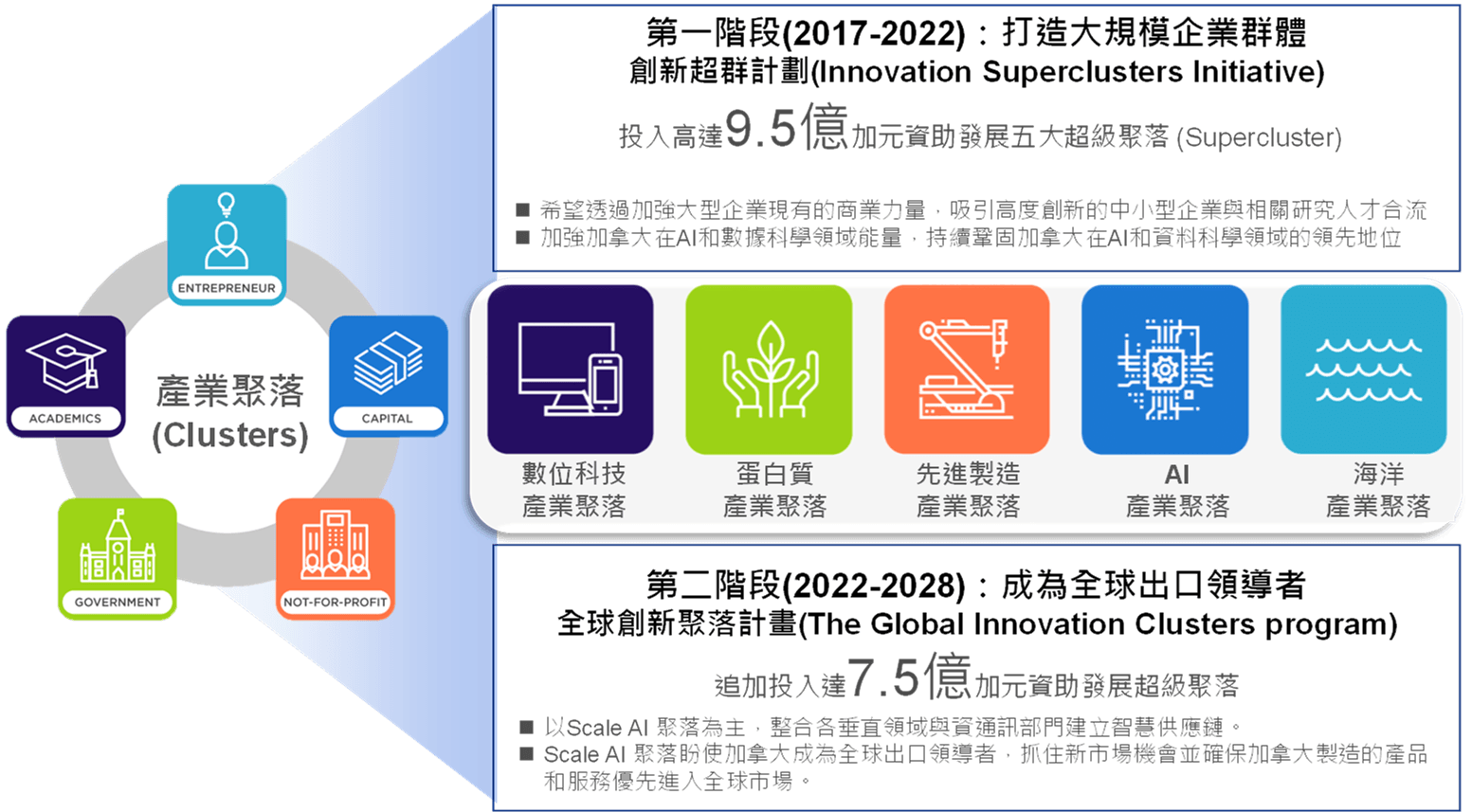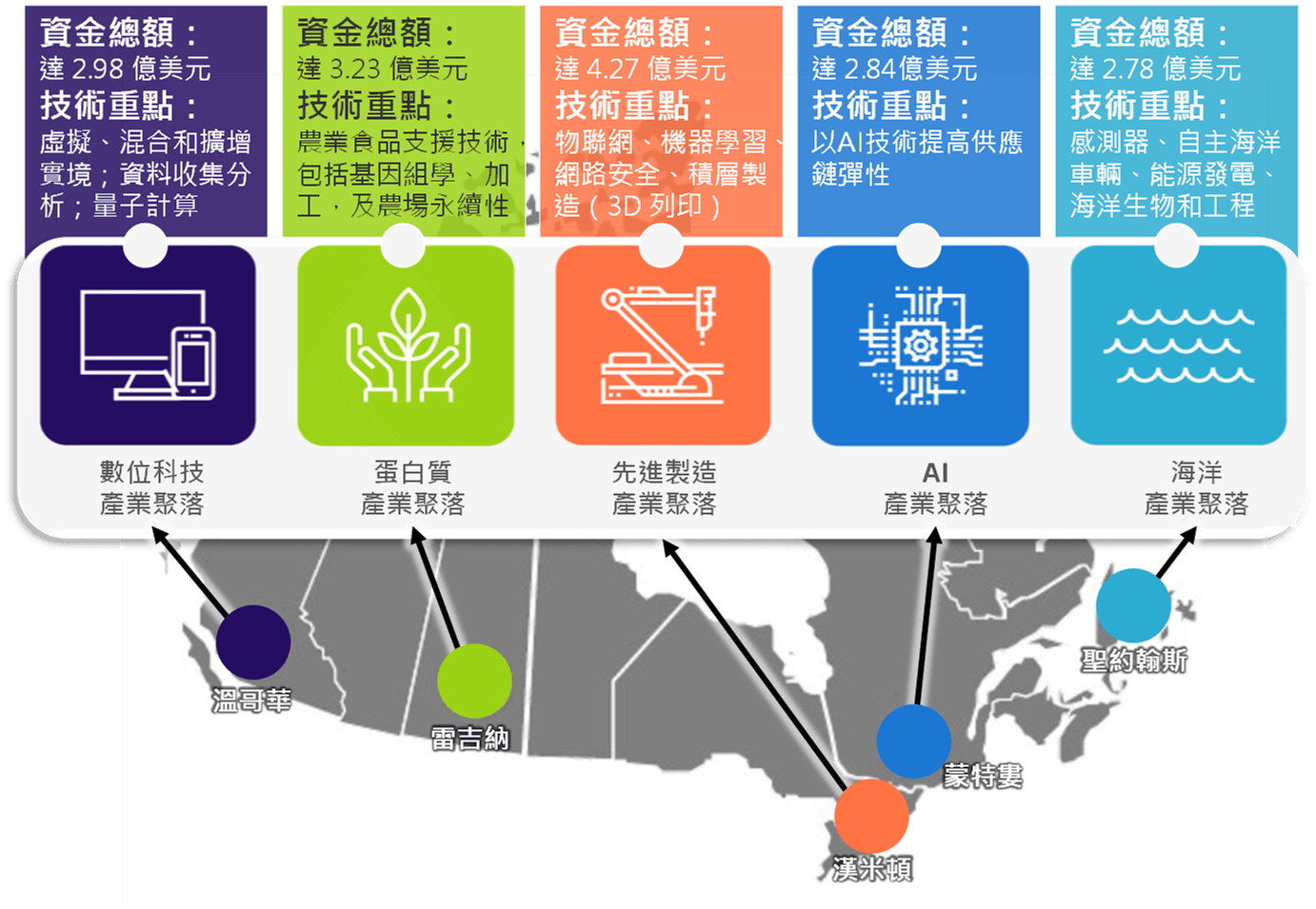2024 Canada AI Development Policy Research: Canada forms a regional AI ecosystem by creating five industrial super clusters


Source: Official website of the Canadian government, summarized by the AI HUB
Pan-Canadian AI Strategy Industry Promotion Policy
Canada's AI-related policies can be traced back to the Pan-Canadian AI Strategy formulated by the Canadian Institute for Advanced Research (CIFAR), which was commissioned by the Innovation, Science and Economic Development Canada (ISED) in 2017. The strategy aims to strengthen the national and regional AI ecosystems and drive Canada’s social and economic growth.
Furthermore, the pan-Canadian AI Strategy mainly targets the characteristics of Canadian industries and focuses on supporting specific industrial clusters to expand its own advantages. It can be divided into two stages. The first stage from 2017 to 2022 is also called the "Innovation Superclusters Initiative." Innovation, Science and Economic Development Canada (ISED) has invested a total of 950 million Canadian dollars over five years to fund the development of five superclusters, namely Digital Technology, Protein Industries, Advanced Manufacturing, Scale AI, and Ocean, strengthening regional innovation ecosystems by inviting alliances that lead each industry to lead and invest in proposals. It supports new partnerships between large companies, SMEs and industry-related research institutions. It hopes to create a shared competitive advantage for the cluster by bridging gaps, integrating advantages, and enhancing attributes. At the same time, it uses intellectual property rights to protect clusters, and the government supports the strategic use of intellectual property rights to help the development of enterprises.
The second phase from 2022 to 2028 is also known as "The Global Innovation Clusters program." The Canadian government allocated another 750 million Canadian dollars to continue to fund the development of industrial clusters and drive Canada’s economic innovation and ecosystem development, expanding Canada’s global leadership in various fields. Focusing on the Scale AI cluster, various vertical fields are integrated with information and communication technologies to establish a smart supply chain. The use of AI technology allows companies to immediately understand when and where products are needed, making it faster and easier for companies to contact each other and work together to increase sales. In addition to improving the ability of enterprises to adopt new AI technologies, it also supports Canadian SMEs through innovation clusters, attracts other capital investments, and accelerates the research and development of Canadian AI solutions to accelerate the commercialization of AI.
In short, the Canadian government has been actively promoting the development of the AI industry since 2017, and has formulated a number of policies and regulations to promote the R&D, application, and commercialization of AI technology. One of the most representative policies is the "Pan-Canadian AI Strategy," which aims to strengthen the national and regional AI ecosystems and create five superclusters, namely: Digital Technology, Protein Industries, Advanced Manufacturing, Scale AI, and Ocean, with AI technology and smart supply chain as the core, Canada is actively promoting cross-industry AI integration.